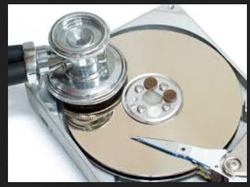We, the Millennials, were using computers or laptops since probably our school days, and there’s a good chance that we heard that data stored in a hard drive is safer than the data stored in a flash drive or SSD. This is true, undoubtedly. But what about those crashed hard drives, “data not accessible” incidents? Let me explain.
Being a mechanical device, a hard drive is prone to degrade over time. After years of usage, there will certainly be a day when your hard drive just won’t boot up or will give you some error messages, or other sorts of problems. However, before that final day comes when you’ll need a hard drive data recovery salvagedata service, that drive will warn you plenty of times by giving symptoms (like it’s taking too much time to boot, some data got corrupted, some unusual mechanical noise you can hear if you notice, etc.) before it says goodbye forever. Therefore, you’ll have adequate time to take a backup of data from that going-to-be-corrupted hard drive.
Not only that, even if it gets corrupted totally, data from a corrupted hard drive is always recoverable – well, sort of. It does depend on many factors though.
Factors behind a successful data recovery

First, your budget is the most deciding factor in case of data recovery. If the drive is completely corrupted and or somehow physically damaged, it will be next to impossible to recover all the data by any software solution. You then would need external data recovery service or forensic data recovery service, which will be costly depending on how “bad” the condition of your hard drive is.
Secondly, successful data recovery depends on how “well” you treated your hard drive once the drive gets corrupted. It’s a rule of thumb that once you see the hard drive or a certain partition of the drive is corrupted, you should never write any further data on that hard drive. Instead, take the drive to a data recovery expert and let him/her do the job. The more data you write on that corrupted drive (or try to write), the less chance any data will be recovered.
Third, it depends exactly what damage was done on that drive. If it’s physical damage, you should not try any software solution (there are plenty of data recovery software available on the internet) and should take the drive to an expert straight away. However, if it’s software damage, then you can try a data recovery software to recover those data.
However, accidental deletion is the most common incident when we need a data recovery service. We simply delete some important data from our hard drive by accident and once we realize that, nothing could be done. In that case, no physical or external data recovery service is needed; any good data recovery software would be enough to recover those accidentally deleted data.
For successful data recovery, the following things should be remembered –
- Never write or try to write more data on the hard drive if you suspect that the drive or a partition of that drive has been corrupted. New data will be overwritten on existing data; hence the recovery chance will get decreased drastically.
- Always have a keen ear to hear some unusual noise from the hard drive, especially if the hard drive is already aged.
3. Do not open the outer case of the hard drive ever. If you suspect anything wrong mechanically or some noise coming from the hard drive, take it to a trained technician

